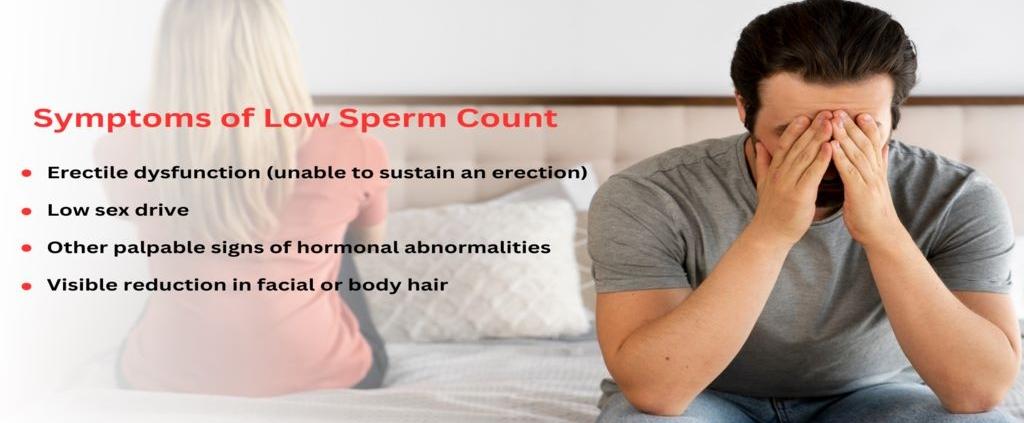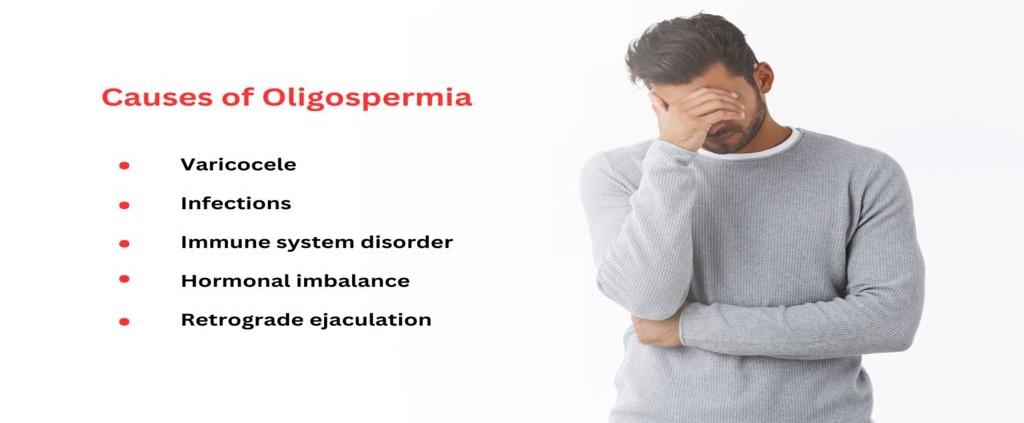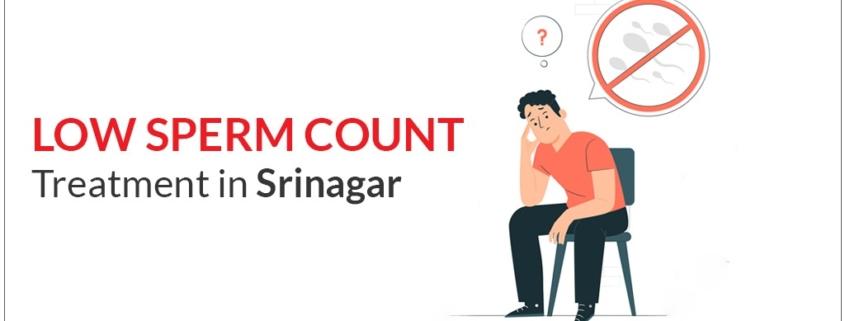Low Sperm Count Treatment
Are you constantly googling low sperm count treatment in Srinagar? Your answer is right here; backed with state-of-the-art technology and medical expertise, we at Imprimis IVF, Srinagar, the best IVF centre in Srinagar, offer affordable low sperm count IVF treatment to help you welcome a healthy little one.
Don’t panic; you are not the only one with a low sperm count. Low sperm count is on the rise globally. Research after research has cemented this fact.
Pregnancy begins with the magical fusion of an egg and sperm. You might ask, when a single sperm has to fuse with the egg, why does low sperm count lead to complications in conceiving? What do we mean by low sperm count, and how do we calculate it?
Well, the process of fusion is highly complex, and a healthy sperm count is an essential requirement to fertilize the egg successfully.
During sexual intercourse, a man gets an erection and ejaculates sperm cells and seminal plasma during his orgasm. The count of these sperm cells must be healthy to fertilize the egg.
A healthy or normal sperm count is witnessed when the sperm concentration is more than 15 million sperm/ml of semen.
What is Oligospermia?
Oligospermia is the medical term for a low sperm count, which refers to the condition when the sperm concentration during ejaculation is less than 15 million per millilitre of semen.
Sperm count is calculated after running a test known as semen analysis, which highlights parameters like ejaculate volume, sperm concentration, total motility, and progressive motility. Based on the values of these parameters, Oligospermia is broadly classified into the following three types:
- Mild Oligospermia – When the sperm concentration is witnessed to be around 10 to 20 million sperm/ml.
- Moderate Oligospermia – When the sperm concentration is witnessed to be around 5 to 10 million sperm/ml.
- Severe Oligospermia – When the sperm concentration is witnessed to be around 1 to 5 million sperm/ml.
Apart from Oligospermia, other medical conditions like Cryptozoospermia and Azoospermia are also found to be responsible for infertility issues. Let’s get down to what both of these medical conditions refer to.
- Cryptozoospermia is when 0 to rare sperm are detected in the semen sample after centrifugation.
- Azoospermia is a medical condition when no sperm (0 sperm) are ejaculated. A plethora of reasons, such as hormonal imbalances, ejaculating issues, abnormal testicular function, and blockage of the reproductive tract, can cause azoospermia.
The reproductive specialist will suggest treatment options based on the type of Oligospermia. In the case of severe Oligospermia, treatment options like IVF and ICSI have helped overcome the hurdle of male infertility due to a low sperm count or poor sperm quality.
According to the data put forward by FertiAlly, the minimum sperm count for IVF or ICSI is required to be around 4 million sperm/ml of semen.
Symptoms of Low Sperm Count:-

A proper medical checkup is mandatory to confirm if you have a low sperm count. However, certain evident symptoms can be a sign that indicates Oligospermia, including:
- Erectile dysfunction (unable to sustain an erection)
- Low sex drive
- Visible reduction in facial or body hair
- Swelling, lumps, discomfort, and pain in and around your testicle region
- Other palpable signs of hormonal abnormalities
Causes of Oligospermia:-

The exact reason behind low sperm count can not be detected. It can only be linked to several medical, environmental, and lifestyle factors that may be the major causes of low sperm count.
Medical reason for Low Sperm Count-
- Varicocele-:
The scrotum, an integral part of the male reproductive system, holds the testicles in place and regulates their temperature.
Varicocele, also termed scrotum varicose veins, is a medical condition when the vein within the scrotum gets enlarged. This enlarged vein disturbs blood flow to the testicles and raises the temperature. This abnormal increase severely affects sperm count.
- Retrograde ejaculation-:
During ejaculation, the semen should flow through the tip of the penis. But sometimes, instead of flowing through the penis, the semen enters the bladder. This abnormality is known as retrograde ejaculation. It results in lower sperm count and causes problems in conceiving.
- Hormonal imbalance-:
The smooth functioning of the body is retained with hormones produced in balanced amounts. However, an imbalance of any hormone that directly affects the functioning of the thyroid, pituitary, adrenal, and hypothalamus glands can lead to male infertility.
- Infections-:
Bacterial infections and sexually transmitted infections (STIs) can affect sperm health. Sometimes, these infections can even result in scars that block or damage the male reproductive system.
- Tumours-:
Both cancerous and noncancerous tumours can affect male fertility by disrupting the normal functioning of the reproductive organs.
- Body weight-:
Obesity comes in tow with several problems, and low sperm count is one of them.
- Immune system disorder-:
It is found that immune system disorders like gluten sensitivity, known as Celiac disease, can lower sperm count.
- Genetic dysfunction-:
Some genetically inherited disorders like Kartegener’s, Kallmann’s, Klinefelter’s, and cystic fibrosis can affect sperm count. It has been found that 10-15% of low sperm count cases are caused due to genetic dysfunction.
- Surgery-:
Surgeries of the bladder, abdominal region, testicles, prostate, hernia, rectum, stomach, scrotum, and vasectomy can reduce sperm count.
Environmental reason for Low Sperm Count-
- Overheating of testicles – The scrotum is responsible for regulating the temperature of the testes. Regulating the temperature of the testicles is important because the production of sperm is a temperature-dependent process.
The scrotum has its natural cooling mechanism. But wearing uncomfortable and tight clothes, sitting for a longer duration, and regularly using bathtubs can raise the temperature of the testicles, which the scrotum can not regulate. It directly impacts both the quantity and quality of the sperm.
- Industrial chemicals – Reusing organic compounds like benzene, toluene, xylene, paints, herbicides, and pesticides can reduce low sperm concentration during ejaculation.
- Harmful radiations-: A study has proven that exposure to X-rays and radio frequency waves can affect a male’s fertility.
- Exposure to heavy metals – Heavy metals like lead, cadmium, arsenic, manganese, etc., can affect sperm count.
Lifestyle factors that lead to Low Sperm Count-
- Alcohol and tobacco consumption-: A study has confirmed that controlled intake of alcohol doesn’t affect male fertility. However, regular and excessive consumption of alcohol and smoking may lower sperm count.
- Steroids and drugs – Abstain from indulging in self-medication. Certain antifungal medications, supplements, and drugs like cocaine and steroids adversely affect your testosterone levels. Lower testosterone levels signify both insufficient quantity and quality of sperm.
- Emotional instability – Stress is a major cause of several diseases, and a stressful regime can even lead to a decrease in sperm count.
- Lack of exercise-: Lack of exercise leads to weight gain, deteriorates your health, and affects the sperm count.
Can you get Pregnant with a Low Sperm Count?
The good news is Oligospermia is treatable. So, yes, you can get pregnant with a low sperm count. A proper blend of medications and lifestyle changes can help reverse this condition.
Treatment Options for Oligospermia

Lifestyle changes that can help improve the quality, as well as quantity of your sperm include:
- A routine of healthy diet and exercise helps maintain a healthy Body Mass Index (BMI)
- Refrain from consuming alcohol and smoking.
- Say goodbye to drugs if you want to boost your sperm count.
- Abstain from taking hot tub baths.
- Keep your stress levels in check.
- Religiously follow the medications prescribed by your doctor.
- Keep track of your sugar level, especially if you have diabetes.
Clinical treatment options backed with proper medications are opted for by doctors to help conceive a baby. The prescribed medications are an assortment of anti-inflammatory, vitamin pills, and testicular and pituitary stimulants that help boost your testosterone levels. Healthy testosterone levels help ensure good quality as well as quantity of sperm.
Men with severe Oligospermia, Azoospermia, and Cryptozoospermia must rely on Assisted Reproductive Technology to help their partner conceive.
The Assisted Reproductive Technology Methods:-
- In vitro fertilization (IVF)-:
IVF treatment has summoned highly promising results in men with a low sperm count. It is performed in a controlled environment where your partner’s eggs are collected and fertilized with sperm. The fertilized egg is then implanted into your partner’s uterus. Its successful implantation means you have conceived a baby.
- Intracytoplasmic sperm injection (ICSI)-:
ICSI treatment is recommended by your reproductive specialist when you have been trying to conceive for two consecutive years, but pregnancy remains a distant dream. In ICSI, a tiny needle makes its way to your testes to collect a single sperm. This sperm is then used to fertilize the egg and gets implanted into your partner’s uterus.
To treat low sperm count, ICSI is combined with IVF to summon better results.
- Intrauterine Insemination (IUI)-:
In IUI treatment, sperm is processed and injected directly into your partner’s uterus. In case you cannot conceive due to the absence of sperms when you ejaculate or poor quality sperms, doctors recommend donor sperm insemination. With the help of suitable ART treatment, this donor sperm fertilizes the egg and gets implanted into your partner’s uterus.
Conclusion-
Consulting a trusted fertility specialist is the first step! Infertility tests and assistance help detect the root cause and the right treatment to achieve positive results.
You can not control genetic abnormalities, but you can take control of your habits. People don’t pay much attention to lifestyle choices, which are vital to your low sperm count treatment.










